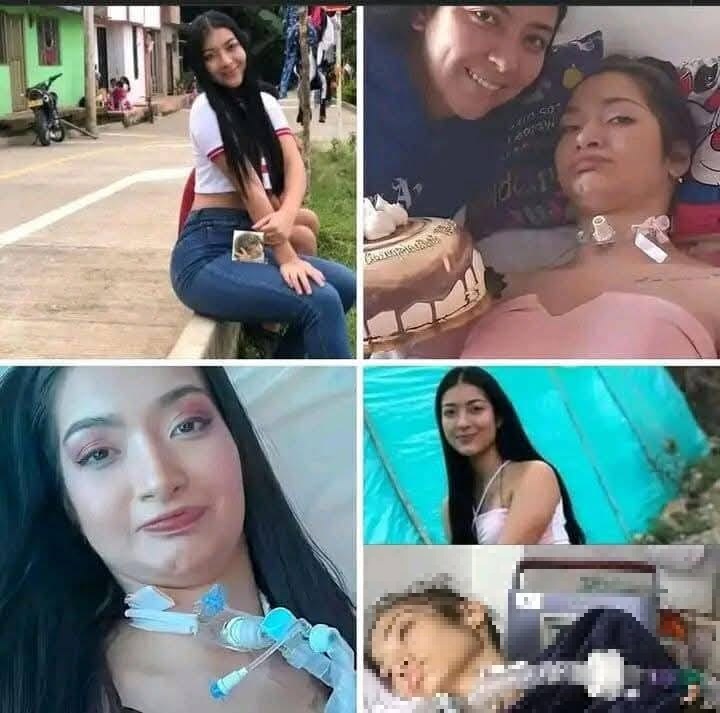Erika Morales, Young Woman Left Quadriplegic by Brutal Attack, Dies After Requesting Euthanasia
Erika Deyanira Morales, a courageous 20-year-old woman from Colombia who fought for the right to die with dignity after being left quadriplegic from a brutal attack, has passed away. Her story—marked by pain, resilience, and the struggle for autonomy—has moved countless people across the country and sparked national debate about euthanasia and victims’ rights.
Erika’s life changed forever at just 17 years old. While visiting a bar in Pasto, she was violently assaulted in the bathroom with a glass bottle. The savage attack left her paralyzed from the neck down, completely dependent on others for even the most basic functions. Her assailants, believed by those close to her to be Glair Gómez and Leidy León, have not been officially named or confirmed by authorities. For years, justice has felt elusive for Erika and her loved ones.
On Saturday, March 1, 2025, Erika’s final wish—to bring an end to her unrelenting physical and emotional suffering—was granted. After a long and difficult journey, she was allowed to undergo euthanasia. Her passing was confirmed in the afternoon. She was only 20.
Erika was originally from Los Andes, Sotomayor, in the department of Nariño. Following the attack, she endured unimaginable pain and medical complications, spending the last three years of her life bedridden. Unable to move, Erika communicated with the help of her family, expressing a consistent and firm desire to end her suffering through euthanasia. Despite this, her healthcare provider, EPS Emssanar, initially denied her request—prolonging an already unbearable situation.
Her sister, Tatiana Morales, became her voice and most passionate advocate. Refusing to let Erika’s plea be ignored, she shared her story on social media, rallying public support. The case went viral, sparking outrage and compassion from citizens across the country. It was only after this wave of public pressure that the Colombian health authority approved the euthanasia procedure on February 22, just over a week before Erika’s passing.
Tatiana confirmed her sister’s death with a touching message sent via WhatsApp: “Fly high, my beautiful angel. I love you always, little sister.” The message was accompanied by a heartfelt photograph of the two of them together. Later, she shared another image—Erika’s hand held gently in hers—symbolizing the deep, unbreakable bond that defined their relationship and the quiet strength they shared in the face of suffering.
According to local media reports, Erika had been facing severe medical complications in the days leading up to her death. However, it has not yet been officially confirmed whether those complications influenced the timing of the procedure.
Erika’s story has captured the attention of the entire country—not just because of the unimaginable injustice she suffered, but because of the dignity with which she endured it. Her family’s raw, honest posts on social media helped humanize a situation that many often ignore. Through those messages, the public came to understand the full extent of Erika’s pain and how the system had failed her time and time again.
For many, Erika Morales has become a symbol of the fight for bodily autonomy and the right to choose a dignified death. Her case has reignited discussions about Colombia’s euthanasia laws and the responsibilities of the healthcare system toward vulnerable patients. More than anything, her life and death have reminded people that compassion, dignity, and justice must be the foundation of any society.
Rest in peace, Erika. Your voice was powerful—even when you could no longer speak—and your courage will never be forgotten.
